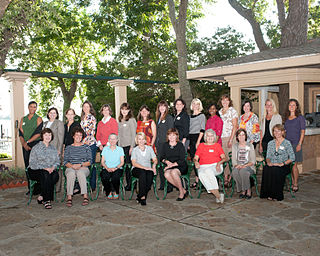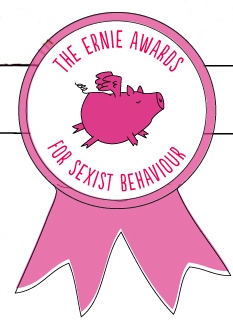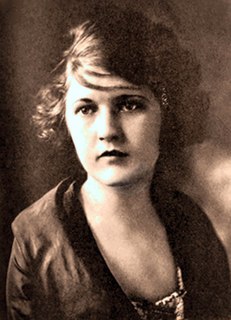 W
WThe following is a list of women who have traveled into space, sorted by date of first flight. Although the first woman flew into space in 1963, very early in crewed space exploration, it would be almost twenty years before another flew. Female astronauts went on to become commonplace in the 1980s. This list includes both cosmonauts and astronauts.
 W
WThe BeyondGenderAgenda is a German-based initiative founded in January 2020 that aims to secure and expand the international competitiveness of German business in the long term by integrating diversity, equity, and inclusion (DE&I) into the DNA of listed and medium-sized companies. Based on the clear link between DE&I and business performance, the aim is to ensure equitable opportunities for executives with disabilities, of all genders, ages, cultural and social backgrounds, or different sexual orientations and gender identities, when filling executive and supervisory board positions, and thus to bring about a cultural change in politics, society and business.
 W
WA bluestocking is an educated, intellectual woman, originally a member of the 18th-century Blue Stockings Society from England led by the hostess and critic Elizabeth Montagu (1720–1800), the "Queen of the Blues", including Elizabeth Vesey (1715–1791), Hester Chapone (1727–1801) and the classicist Elizabeth Carter (1717–1806). In the following generation came Hester Lynch Piozzi (1741–1821), Hannah More (1745–1833) and Frances Burney (1752–1840). The term now more broadly applies to women who show interest in literary or intellectual matters.
 W
WCarceral feminism is the advocacy for enhancing and increasing prison sentences that deal with feminist and gender issues. It is the belief that harsher and longer prison sentences will help work towards solving these issues. The phrase "carceral feminism" was coined by feminist sociologist Elizabeth Bernstein in her 2007 article, "The Sexual Politics of the ‘New Abolitionism." Examining the contemporary anti-trafficking movement in the United States, Bernstein introduced the term to describe a type of feminist activism which casts all forms of sexual labor as sex-trafficking. She sees this as a retrograde step, suggesting it erodes the rights of women in the sex industry, and takes the focus off other important feminist issues, and expands the neoliberal agenda. Bernstein expanded on this analysis to demonstrate how feminism has more generally become a vehicle of punitive politics in the US and abroad.
 W
WThe Concepción feminist mural is a mural painting entitled "La unión hace la fuerza" by the Spanish collective Unlogic Crew on the exterior wall of the municipal sports centre in the Concepción neighbourhood of Madrid at Calle José del Hierro nº5. The project was selected in 2018 through a consultation on Decide Madrid and its design was developed with the participation of the neighbourhood of the district of Ciudad Lineal.
 W
WConcubinage is an interpersonal and sexual relationship between a man and a woman in which the couple does not want to or cannot enter into a full marriage. When there is an inability or social discouragement for the couple to marry, it may be due to multiple factors such as differences in social rank status, an existing marriage, religious or professional prohibitions, or a lack of recognition by appropriate authorities.
 W
WLouie Cullen was a British suffragette and hunger striker who emigrated to Australia to continue her feminist activism. She was imprisoned for her activist work, and was awarded a Holloway brooch.
 W
WBeth Doherty is a climate activist living in Ireland. A follower of fellow climate activist Greta Thunberg, Doherty is a co-founder of School Strikes for Climate Ireland and member of Fridays for Future. Beginning at age 15, Doherty has raised awareness of efforts to fight climate change.
 W
WEmbedded feminism is the attempt of state authorities to legitimize an intervention in a conflict by co-opting feminist discourses and instrumentalizing feminist activists and groups for their own agenda. This term was introduced in the analysis of the US-led invasion of Afghanistan, but can also be applied to several historical examples where women's rights were used as justification and legitimization of Western interventionism.
 W
WThe Equality Amendment is a proposed Amendment to the U.S. Constitution by legal scholars Kimberlé Crenshaw and Catharine MacKinnon. It was first proposed in December 2019 in the Yale Law Journal. This proposal is an updated version of the Equal Rights Amendment written by Alice Paul from the National Women's Party, which was first proposed in 1923 and has not been ratified. This is different from the Equality Act, which has been proposed in Congress to prohibit discrimination based on biological sex, gender identity or sexual orientation.
 W
WThe Ernie Awards, or the 'Ernies', are Australian awards for comments deemed misogynistic. They are held annually.
 W
WEugenic feminism was a component of the women's suffrage movement which overlapped with eugenics. Originally coined by the eugenicist Caleb Saleeby, the term has since been applied to summarize views held by some prominent feminists of the United States. Some early suffragettes in Canada, particularly a group known as The Famous Five, also pushed for eugenic policies, chiefly in Alberta and British Columbia.
 W
WFeminist Bookstore News (FBN) was a trade publication for feminist bookstores. It was active from 1976 until 2000, and issues were published sometimes bimonthly and sometimes quarterly. The publication was described by Tee Corinne as "the glue that kept women booksellers around the world together", acting as a network for feminist booksellers and publishers across the United States and transnationally.
 W
WFeminist interventions in the philosophy of law concern the examination and reformulation of traditional legal systems in order to better reflect the political, social, and economic concerns of women---which also includes various other minority and ethnic groups. Though it draws heavily from feminist legal theory, feminist interventions in the philosophy of law differs from the more common feminist jurisprudence as it also seeks to explain the justification that a government has in interfering with the lives of its citizenry. Accordingly, then, feminist interventions in legal philosophy specifically addresses the relationship and rationale between a judicial system's exercise of power and its effects on female citizens. While particular views vary greatly, most feminist interventions in the philosophy of law operate under a belief that many contemporary legal systems are predicated on patriarchal notions of masculinity that result in a system of deeply-rooted bias and inequality.
 W
WFeminist sociology is a conflict theory and theoretical perspective which observes gender in its relation to power, both at the level of face-to-face interaction and reflexivity within a social structure at large. Focuses include sexual orientation, race, economic status, and nationality.
 W
WFeminist: Japan or FEMINIST was a Japanese feminist bi-monthly magazine established in Tokyo, Japan in 1977. Led by Ikuko Atsumi and a group of academic women, the journal aimed to make women's voices heard and to promote women's studies, which was not yet a part of the curriculum in Japanese Universities. The magazine covered topics and themes such as women and language, media, motherhood, arts, and power.
 W
WFighting Woman News was an American feminist periodical founded in 1975. Published quarterly by Spectrum Resources, the magazine wrote and advocated about martial arts, self-defense, and combative sports for and by women. It published news and articles on techniques, workshops, and events. Fighting Woman News also regularly sent representatives to women’s conferences to promote self-defense and martial arts literature for women.
 W
WGender neutrality, also known as gender-neutralism or the gender neutrality movement, is the idea that policies, language, and other social institutions should avoid distinguishing roles according to people's sex or gender. This is in order to avoid discrimination arising from the impression that there are social roles for which one gender is more suited than another. The disparity in gender equality throughout history, has had a significant impact on many aspects of society, including marketing, toys, education and parenting techniques. In order to increase gender neutrality in recent years, there has been a societal emphasis on utilising inclusive language and advocating for equality.
 W
WChanges in gender roles in Central and Eastern Europe after the fall of Communism have been an object of historical and sociological study.
 W
WGypsy feminism or Romani feminism is the feminist trend that promotes gender equality, the fight against social inequalities and the defense of the integration of women in different movements in society, making these processes compatible with the preservation of culture and values of the Romani people.
 W
WInternational Women's Day (IWD) is a global holiday celebrated annually on March 8 to commemorate the cultural, political, and socioeconomic achievements of women. It is also a focal point in the women's rights movement, bringing attention to issues such as gender equality, reproductive rights, and violence against women.
 W
WThe following is a list of women who have been elected head of state or government of their respective countries since the interwar period (1918–1939), and below that is a list of appointed heads of state. The first list includes female presidents who are heads of state and may also be heads of government, as well as female heads of government who are not concurrently head of state, such as prime ministers. The list does not include female monarchs who are heads of state.
 W
WManifa is an annual feminist demonstration organized in connection with International Women's Day on March 8 in various parts of Poland. In Warsaw it is organized by the informal group Alliance of Women. The name comes from the slang abbreviation for the word manifestacja, used in this form by the anti-government opposition in the 1980s. In 2007 the Manifa was called the "March of Women's Solidarity" and emphasizing the commonalities of women's struggles. It represents the power of women how they have the moral right women have to obtain the final say in their decisions. The rights that women have fought so hard to make a reality and on June 4, 2009, was the twentieth anniversary in Poland for the celebration of freedom of speech and will of the people.
 W
WThe Matilda effect is a bias against acknowledging the achievements of those women scientists whose work is attributed to their male colleagues. This effect was first described by suffragist and abolitionist Matilda Joslyn Gage (1826–98) in her essay, "Woman as Inventor". The term "Matilda effect" was coined in 1993 by science historian Margaret W. Rossiter.
 W
WThe Me Too movement, with variations of related local or international names, is a social movement against sexual abuse and sexual harassment where people publicize allegations of sex crimes. The phrase "Me Too" was initially used in this context on social media in 2006, on Myspace, by sexual harassment survivor and activist Tarana Burke.
 W
WPurplewashing is a compound word modeled on the term whitewash. The prefix "purple" is associated with the belief of Feminism while the verb "wash" is used to denounce the co-opting strategies that use minority rights to maintain or enhance structural forms of discrimination.
 W
WRagini Upadhyaya Grela is a Nepalese fine artist, lyricist, and philanthropist.
 W
W"A Rapist in Your Path", also known as "The Rapist Is You", is a Chilean feminist performance piece protesting violence against women. It has been performed in Latin America, the United States, and Europe. Based on the work of Rita Segato, the piece was created by the Valparaíso feminist collective Las Tesis.
 W
WRooie Vrouwen in de PvdA was the name of a woman's organization active in the Dutch Labour Party, the PvdA.
 W
WA sex strike, sometimes called a sex boycott, is a strike, a method of non-violent resistance in which one or multiple persons refrain from sex with their partners to achieve certain goals. It is a form of temporary sexual abstinence.
 W
WThe sexual revolution, also known as a time of sexual liberation, was a social movement that challenged traditional codes of behavior related to sexuality and interpersonal relationships throughout the United States from the 1960s to the 1980s. Sexual liberation included increased acceptance of sex outside of traditional heterosexual, monogamous relationships. The normalization of contraception and the pill, public nudity, pornography, premarital sex, homosexuality, masturbation, alternative forms of sexuality, and the legalization of abortion all followed.
 W
WTissiflashmob was a demonstration organised by Sandra Marins and Säde Vallarén, which was held for the first time in June 2019 at the Hietaniemi beach in Helsinki, Finland. The organisers held the demonstration in criticism for a previous event where a woman had been removed from a beach for sunbathing topless.
 W
WRebecca Traister is an American author and columnist. Traister is a writer-at-large New York magazine and its website The Cut, and a contributing editor at Elle magazine. Traister wrote for The New Republic from February 2014 through June 2015. Traister regularly appears on cable TV news, commenting on feminism and politics.
 W
WWe Wanted a Revolution: Black Radical Women, 1965–85 is an exhibition held in the Brooklyn Museum of Art from April 21, 2017 through September 17, 2017. Exhibition surveys the last twenty years of black female art and presents more than forty artists and activists who decided to dedicate their work to the fight against racism, sexism, homophobia, and class injustice. It is not organized chronologically or by authorship, but thematically.
 W
WTrousers or pants first appear in recorded history among nomadic steppe-people in Western Europe. Archaeological evidence suggests that men and women alike wore trousers in that cultural context. However, for much of modern history, the use of trousers has been restricted to men. In many regions, this norm was enforced not only by social custom but also by law. There are, however, many historical cases of women wearing trousers in defiance of these norms, for a variety of reasons, including comfort, freedom of movement, fashion, disguise, attempts to evade the gender pay gap, and attempts to establish an empowered public identity for women. Especially in the 20th and 21st centuries, the customs and laws restricting this manner of dress have relaxed dramatically, reflecting a growing acceptance and normalisation of the practice.
 W
WWomen’s healthcare within the United States has been constantly evolving to more fully address the needs of women throughout the U.S. During the twentieth century, many policies, practices, and treatments improved in order to better fit the needs of the women. Men were often viewed as the appropriate professionals to attend to healthcare needs in the United States, including those of women. This made the healthcare in the United States a sexist system. Women holding positions of power within our government -as well as some men- would use their political stance to better address the needs of women. Policies were being revoked and new ones were being put in their place; policies that include women from minority groups that face racial prejudice not only from within the workforce, but from healthcare institutions as well. In the 1950s into the 1960s, these healthcare institutions had scientists and doctors working on producing contraceptives, despite their controversial public opinions. Feminists within the U.S. were speaking out against the injustices and inequality women were facing in the twentieth century to bring awareness to the needs of women and ensure that as a country we better address those needs within the twentieth century.
 W
WThe Women's Suffrage Movement, challenging female voting eligibility, resulted in feminine designs of the early 1900s shifting as a result of this widespread. This shift introduced masculine styles into female fashion and coincided with the popularisation of the Flapper style.